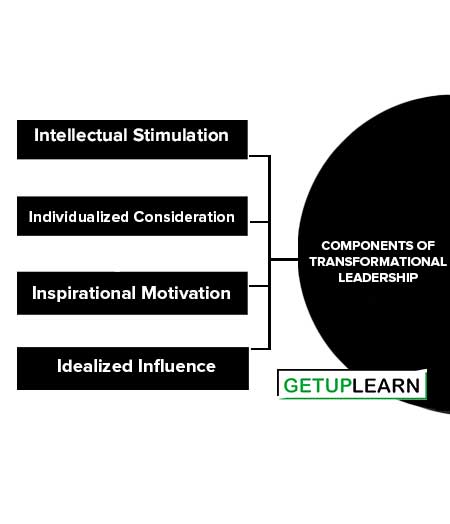Table of Contents
What is Transformational Leadership?
The concept of transformational leadership was initially introduced by leadership expert James MacGregor Burns. Subsequently, Burns’ original ideas were expanded upon by researcher Bernard M. Bass, and this theory is referred to as Bass’ Transformational leadership theory.
The transformational approach to leadership rests on change and the role of leadership in envisioning and implementing the transformation of organizational performance. Aided by the strength of their vision and personality, transformational leaders are able to inspire followers to change expectations, perceptions, and motivations to work towards common goals.
Components of Transformational Leadership
A transformational leader puts passion and energy into all endeavors. Transformational leadership starts with the development of a vision, a view of the future that will excite potential followers. The next step, which, in fact, continues as a never-ending process, is to constantly sell the vision.
The transformational leader takes every opportunity and ensures that by all means the vision is convincing across the organization. This is followed by seeking the way forward to convert the vision into reality. This can also be an ongoing process fraught with corrections, but ahead. The final stage is to assume a central role during the action.
Bass suggested four different components of transformational leadership, which are also known as the four I’s. Figure 2 represents these four components:

Intellectual Stimulation
Intellectual Stimulation describes managers who encourage innovation and creativity by challenging the ordinary beliefs or views of a group.
Transformational leaders not only challenge the status quo. but they also encourage creativity among followers. They encourage followers to explore new ways of doing things and new opportunities to learn and thus contribute to making the organization better.
Individualized Consideration
Individual consideration describes managers who act as coaches and advisors to their associates and offer them support and encouragement to reach goals that help both the associates and the organization.
Towards fostering an ambiance of support, transformational leaders ensure that lines of communication are open so that followers feel free to share ideas.
Inspirational Motivation
Transformational leaders have a clear vision that they are able to communicate to followers. Inspirational motivation describes managers who motivate associates to commit themselves to the vision of the organization. These leaders are also able to help followers experience the same passion and motivation to accomplish such goals.
Idealized Influence
Idealized influence describes managers who are archetypal role models for their followers. Because of the immense trust and respect such leaders command, followers tend to internalize the ideals of these leaders. Managers with idealized influence can be trusted and respected by followers to make decisions for the benefit of the organization.
In the end, transitional leadership encompasses all aspects of leadership theories and styles. This new leadership theory proposes that a leader can transition from one theory or a particular leadership style to another as the situation demands.
Translational leadership must hence include all leadership theories (with the exception of the widely criticized Great Man Theory) and all leadership styles.
The underlying theme of this type of leadership is that leaders are made not born, so every effort should be made to collectively make the leaders the best that they can be. There should thus be no argument over which theory or leadership style is the best. Leaders must instead utilize all aspects of leadership.
FAQs Section
What are the components of transformational leadership?
The following are the components of transformational leadership:
1. Intellectual Stimulation
2. Individualized Consideration
3. Inspirational Motivation
4. Idealized Influence.
